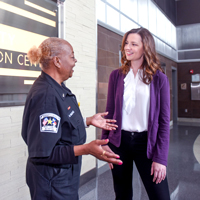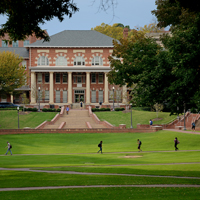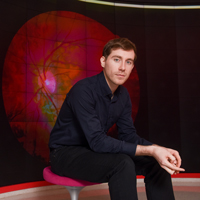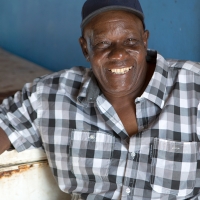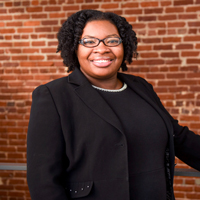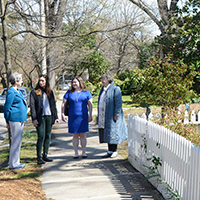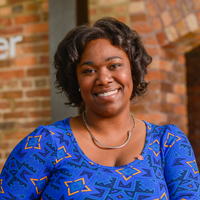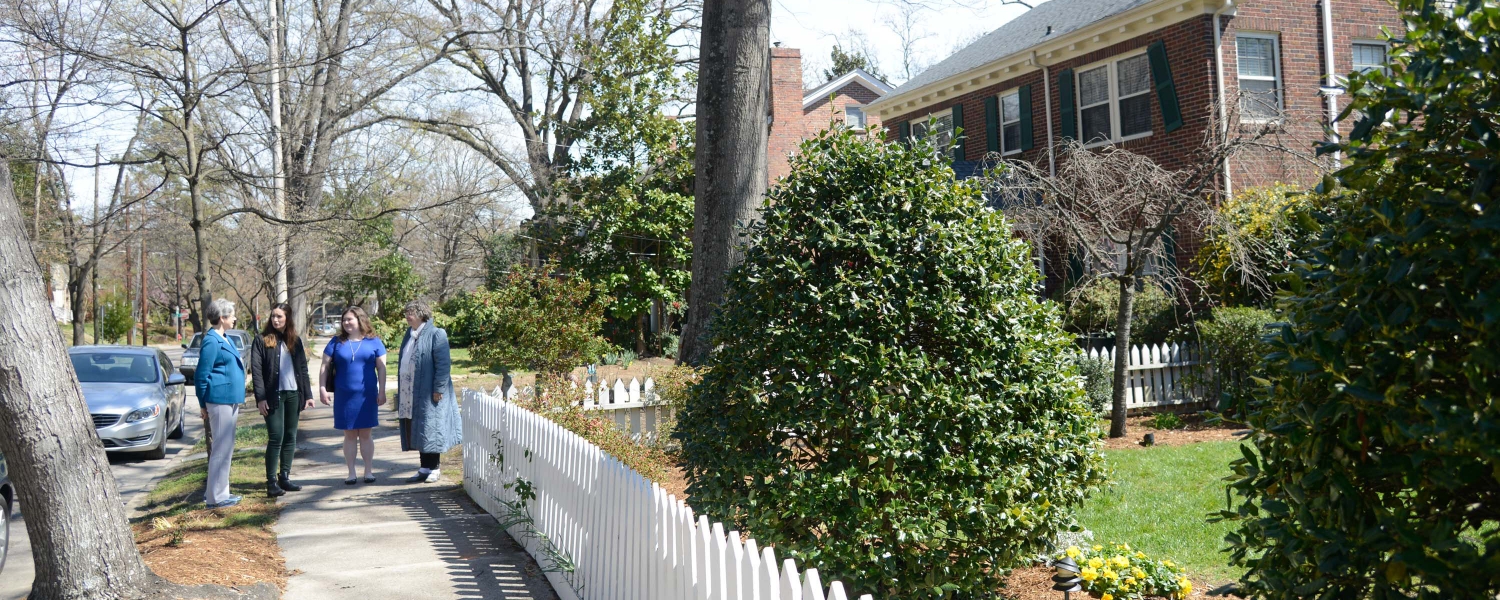
Supporting
a Village
Some residents of Raleigh’s historic Cameron Park neighborhood have lived there for 50 years.
It’s where they raised their kids. It’s where they met some of their oldest friends. It’s where they plan on living the rest of their lives — and research from NC State graduate students is helping make sure that will be possible.
This project helps bring the decision-making back to these older adults and helps them decide their own future.
Through a year-long partnership with a Cameron Park steering committee, social work grad students Laura Uribe and Bristol Bowman studied what needs residents must meet to stay in their homes as they age. Their findings are informing community leaders about what services could best support neighbors in the future and point to potential strategies for providing them.
“There’s a stigma that once people reach a certain age, they can’t do anything for themselves and they should move into retirement communities,” Uribe says. “This project, however, helps bring the decision-making back to these older adults and helps them decide their own future.”
Cameron Park, located just west of downtown Raleigh, was originally developed in the early 1900s and has been home to prominent business owners, politicians, professors and other citizens over the years. Today, the neighborhood’s large proportion of older adults technically classifies it as a naturally occurring retirement community, a term used to describe areas where more than half of the residents are older than 60.
As they surveyed and interviewed residents from many of Cameron Park’s estimated 250 households, Uribe and Bowman found that neighbors’ top future needs included transportation, respite care and minor yard work. Neighbors also identified a need for vetted service providers such as home repair companies, medical specialists and technology training and assistance.
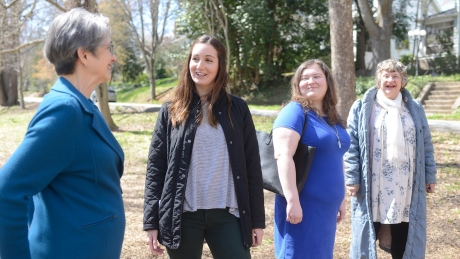
With regard to providing the services identified in Uribe and Bowman’s research, there are several options. One popular idea among the Cameron Park residents is to establish a Village, or a community model designed to help adults age in place.
A Village is similar to a homeowner’s association, but it has more social offerings and is typically located in communities with a large population of older adults. Village neighbors cooperate in pooling their time and/or money to subsidize services everyone can use. Transportation, nursing services, computer assistance and friendly visits are all examples of benefits provided by some of the nearly 200 villages registered with the national Village-to-Village Network across the United States.
Villages can take on many different forms. Some are registered nonprofits that employ executive directors and staff members. Others are less formal grassroots efforts and rely heavily on a coalition of neighbors to serve as volunteers.
“There is a very strong sense of community in Cameron Park, so in a way it already functions as a Village,” Uribe says. Smaller groups of neighbors already help each other out with various services from time to time; the Village model would extend that concept, in a more organized fashion, to the entire community.
In the survey of Cameron Park residents, more than 90 percent of respondents said they had previously attended a Cameron Park event. In addition, many residents said they’d be most willing to help other neighbors with errands, transportation or a daily house visit or phone call.
Our students and faculty work beyond the walls of campus. This video, produced by students in NC State professor Jim Alchediak's Advanced Digital Video course, captures three of the many extensive partnerships we forge in the community.
‘This has real meaning’
National surveys have shown that the majority of older adults want to stay in their homes as long as possible. In addition, recent research shows that remaining independent and avoiding stress are two factors linked to healthy aging. As baby boomers continue to increase the population of adults older than 65, governmental agencies, health care organizations and nonprofits are all trying to figure out how to promote aging in place. Villages are just one strategy for accomplishing this.
Cameron Park residents began the conversation about aging in place a few years ago, at the neighborhood’s Christmas party. Resident Terry Wall remembers how one discussion sparked a broader dialogue that has continued today.
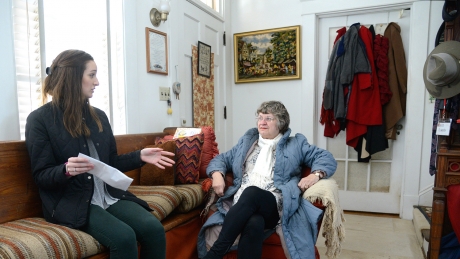
“We wanted to have a way to keep up with each other, make sure no one is in trouble and make sure people who are better off getting a ride to the grocery store can get a ride,” Wall said. “We all have similar values, but we have differences in being able to pay for things or pitch in and volunteer.”
The group of concerned neighbors formed a steering committee that meets once a month. They examined different models for Villages across the nation and organized community events to bring in new faces. There’s now a monthly “pub night,” for instance, where they hang out at a local restaurant.
To take the next step in evaluating the future needs of residents, the steering committee connected with NC State’s Department of Social Work in the summer of 2016. Uribe and Bowman agreed to work with the neighborhood on a needs assessment, which doubled as their research capstone project.
While working with the group, the students also participated in field placements — Uribe at a local dialysis clinic and Bowman at a continuing care retirement community. Both students graduated with their Master of Social Work in May 2017.
Support Student Research
As a student at NC State, Laura Uribe received support from the Leland E. and Nancy Garrett Scholarship Endowment. You can support our students, faculty and programs.
“A lot of these residents only need a small number of supports to function independently — some of them don’t need any. But they might need some in five to 10 years, either on a short-term basis if someone is recovering from a fall, or longer term for other reasons,” Bowman says. “By working together to offer these kinds of services, they won’t need to move from their homes if something like that does happen.”
Going forward, Cameron Park will use the students’ findings to continue mapping out how to deliver the identified services. NC State social work professor David Fitzpatrick, who served as the adviser for the student research, says Uribe and Bowman’s work benefits everyone involved.
“This is a great example of collaboration between NC State and the local community,” Fitzpatrick says. “It informs residents about the community’s future needs and what resources are available, but it also gives our students insight into issues facing aging populations.
“This has real meaning.”
CATEGORIES: Engagement, Social Work, Spring 2017, Students

